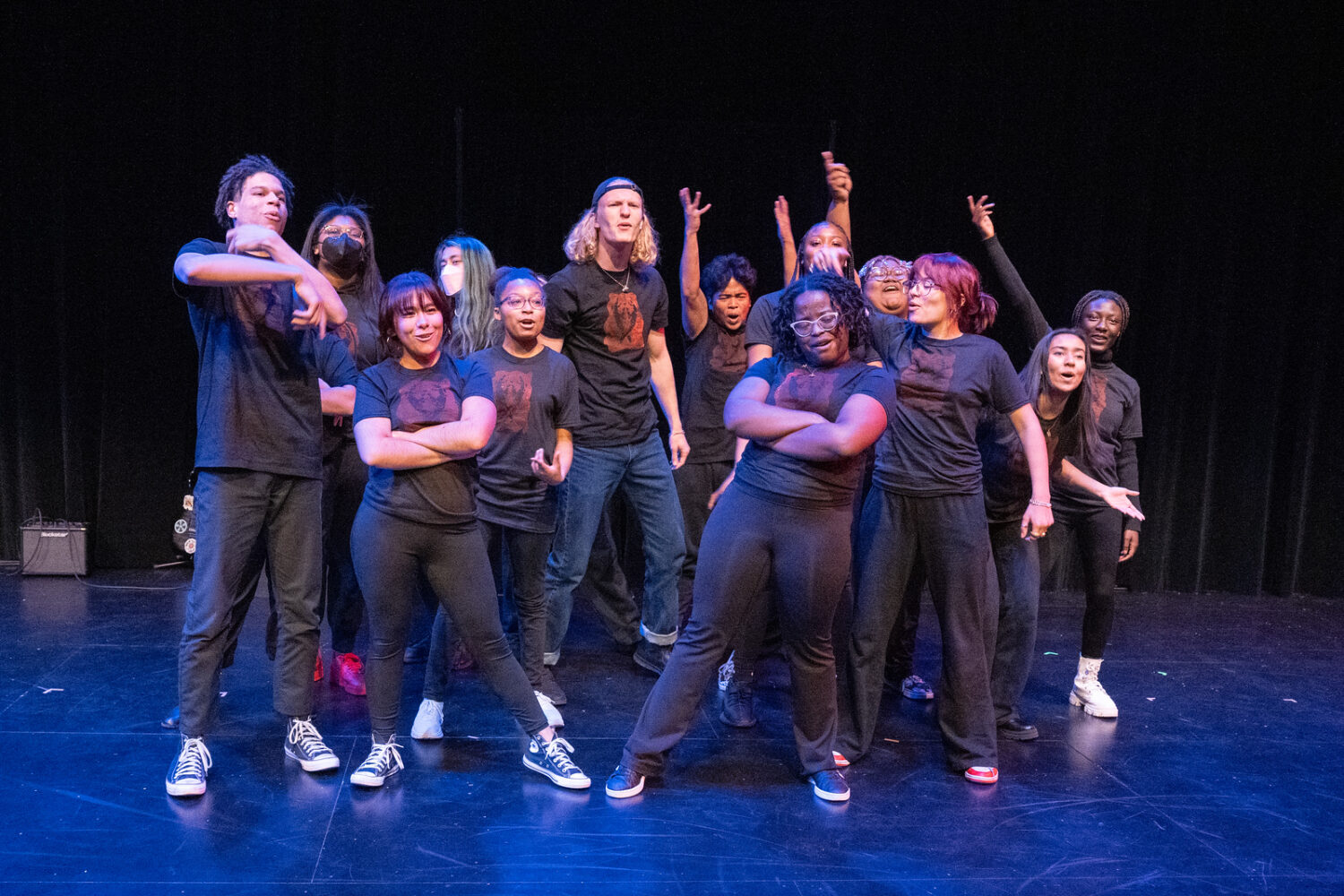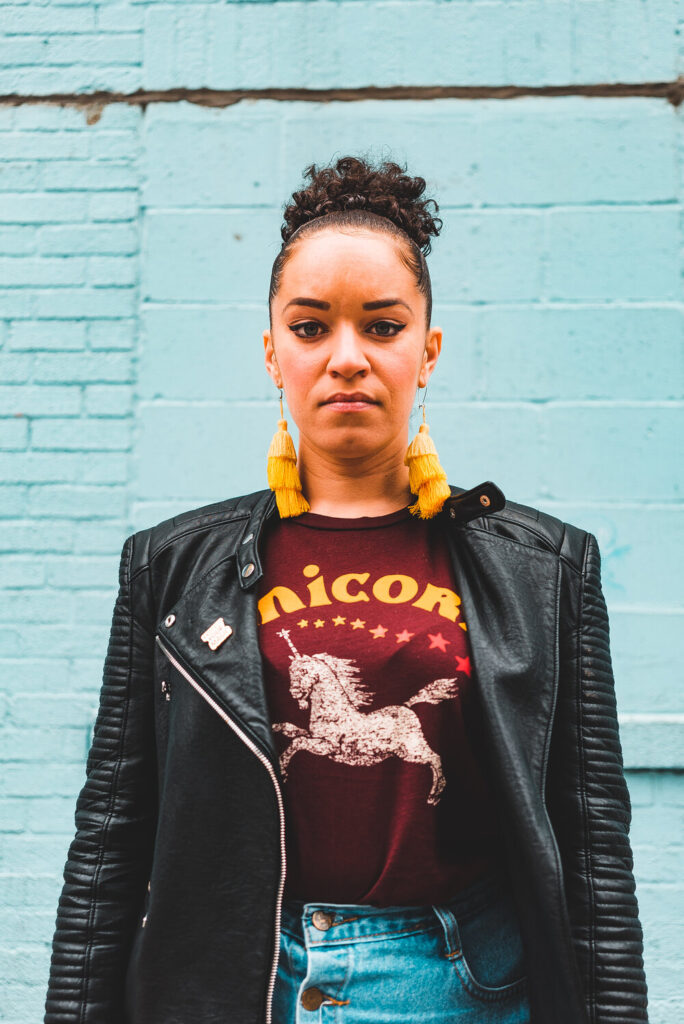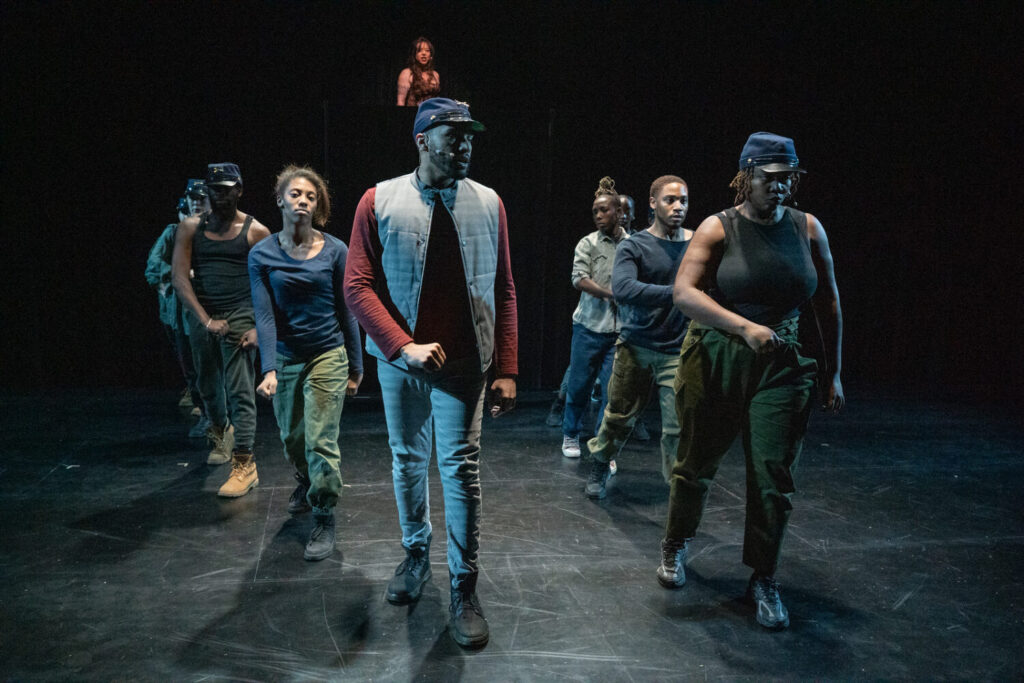
The 17th annual Passing the Mic Intergenerational Hip Hop Festival will be taking place this weekend with the Day One Showcase tonight from 7-9 p.m. at MYArts on E. Mifflin St. and the Day Two Showcase on Saturday, Oct. 21, 7-9:30 p.m. at the Union Playcircle Theatre in UW-Madison’s Memorial Union.
UW-Madison’s Office of Multicultural Arts Initiatives (OMAI), within the Division of Diversity, Equity, and Educational Achievement, houses the first Hip Hop scholarship program of its kind in the country, First Wave. It is through this 17-year-old initiative that focuses on urban arts and Hip Hop culture, that Passing the Mic came to fruition.
With exciting changes coming this year with a new Hip Hop Arts Residency Program (HHARP), OMAI is hoping to combine the spirit of its 2022-23 partnership with the Division of the Arts’ Interdisciplinary Artist Residency Program with the established practices of First Wave. To kick off the program, Shannon Matesky, a California Bay Area actress, producer, director, and writer, has been getting engaged on campus and beyond and was excited to be involved with First Wave in particular.

“Knowing that there is an initiative like that at a university is super dope for an artist to hear and just opens the door for an artist like me to come back and give back to the young people who are on a similar path that I was on,” Matesky told Madison365. “As a young person starting in Hip Hop and programs related to Hip Hop, inspired by Hip Hop arts, and really utilizing all of that background and imbuing it in my career, I’m super excited to get back in all different types of classrooms.”
Matesky will also be the featured artist for the Passing the Mic Festival, and has spent her time in Madison so far hosting workshops, holding conversations, and getting in classrooms across a variety of relevant disciplines. Sofía Snow, OMAI director, spoke to the intentionality of the residency program as not only going beyond the borders of the UW campus, but also as being a mutually beneficial exchange for both the students and community here and the visiting artist.
“We want HHARP to be a place where we can bring out working artists to, yes, engage and provide educational experiences, but also have that retreat type of space to work on their own stuff,” Snow said, discussing the opportunities they want to provide for visiting artists. “Which, as a working artist, is really hard to come by. To be able to pay your bills, and also just think and create and play, and work on the projects that you either want to start or you want to finish. We always try to make time in the artists schedule for them to work on their own project, as well as share some rendition of it. Whether it’s the final draft or the first draft, it’s about being able to utilize the showcase as a way for them to work through their own creative project.”
Matesky will be the first in the program that is expected to take place five times over the academic year. With each visiting artist staying for an extended period of four to ten days, the opportunity to make authentic and deep connections with fellow artists and Madison community members is essential. Matesky hopes that her debut of a new work she is developing during the residency will touch something deeper in the audience, especially the students she has grown close to over the last few days.
“This is a college audience, and knowing that these are young people trying to shape and identify themselves, I hope that my story inspires them to fill their lives and fill the content of their character with who they are and who they really want to become,” said Matesky. “Understand that that is not limited by any demographic that others may try to define you as, that is only a starting place.”
OMAI certainly provides space to do such exploring as students in First Wave are expected to develop their own projects and works that speak to their personal experience. Snow attested to the importance of inspiration and finding a path through unique opportunities as an alumna of the inaugural First Wave cohort.
“I remember being a senior in high school, not sure if I wanted to go to college, and being recruited for this program that didn’t really exist yet. My predecessor at the time said, ‘Well, you’d actually have a community of folks that are Hip Hop artists and activists and community organizers. You can major in whatever you want, and actually have that home base in college.’ That meant so much to me,” said Snow, commenting on seeing that same spark in students who may feel that higher education spaces are not for them finding a home in First Wave.
“For young people to be able to say, ‘I can get access to education, and ultimately access to power and opportunities for being who I am, for doing incredible work I do in the community, for being an artist and part of Hip Hop culture, and I can get a full ride for that.’ That’s huge not just for OMAI or UW, but that’s huge for Hip Hop.”
Snow discussed the history of OMAI in connection with artists such as Marc Bamuthi Joseph who came to UW in 2007 and worked to establish annual OMAI initiatives such as the Just Bust! Open Mic Series and Line Breaks Hip Hop Theater Festival.
Matesky made it a point to praise First Wave for both its impact as a path for students to access higher education while still centering their Hip Hop identity and skills, and also as a precedent for what Hip Hop culture can help build.
“It really was dope seeing a cohort like First Wave be a capsule to train folks and strengthen their technique, but that group of people comes from diverse environments all across the country,” Matesky said. “This being the only opportunity like this in the nation, so they come from all over. Speaking of community, one of the values that I was brought up with as a young person, which is rooted so much in social justice pedagogy and Hip Hop pedagogy, is a continuum. Understanding that we all exist in each other’s timeline and each other’s lifetime, and it will be cyclical, and it’ll come back, and it’ll always exist.”
A perfect example of Matesky’s sentiments is the relationship she has built with OMAI Associate Director Cydney Edwards. Edwards and Matesky first met through a youth program in Chicago before Edwards would eventually come to UW through the First Wave program.

Edwards discussed the importance of retention and attracting students to the program by offering opportunities and being intentional in creating environments for students to grow in both their art and education. Discussing the theme of this year’s Passing the Mic Festival, Edwards was glad that the choice to bring artists to UW to coincide with established OMAI initiatives aligns with other external factors currently happening to inspire creative responses.
“This year, we decided to go with the theme of the thematic journey of the power of your story,” Edwards told Madison365. “Really give truth to that narrative power that youth are experiencing. We feel like it’s a really pivotal time in the world. We feel like we are still very much dealing with the pandemic and the way that that affected youth and their stories, but this year also is the celebration of 50 years of Hip Hop. We really wanted to give honorship to that as a Hip Hop scholarship program.”
Other events such as the Just Bust! Open Mic Series on Nov. 3 will see visiting author Adam Mansbach and rapper, writer, and educator Defcee. The move to MYArts for the first night of the Passing the Mic Festival speaks to what Edwards identified as continued efforts to bridge campus and community relations, along with continued collaboration with community partners.
Edwards was happy to say that such relationships usually do not have to be forced on their First Wave students, however. The crucial aspect to making Madison more hospitable for their students in Edwards’ opinion, starts with becoming an engaged member of the Madison community.
“When we are even more intentional behind it, then we have this really nice emerging connection. This year, I thought it was really important to deepen that understanding,” said Edwards, happy to mention how First Wave students often make connections with community institutions such as schools to build relationships outside of just the UW campus.
“Really understanding that our students need to be fully holistic Madisonians to exist and thrive here. Make no mistake, them being able to pay it forward with Black and brown youth from Madison schools is absolutely essential to their lifeblood, and being able to make it successfully four to five years here. They need to see other Black and brown students in order to live and thrive here. And so we always tell them to take it beyond campus and encourage that.”
To learn more about the Office of Multicultural Arts Initiative, First Wave, and see more events coming up, visit the OMAI website here.



